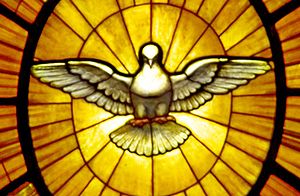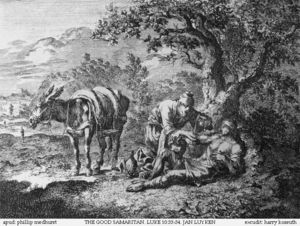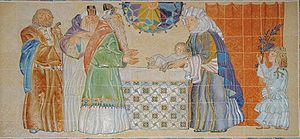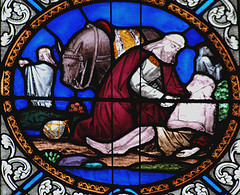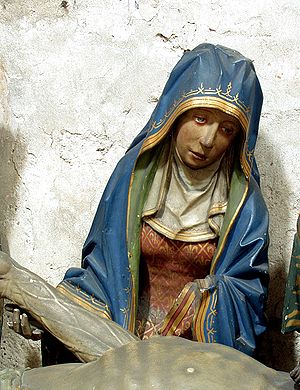I came across this article on Catholic Exchange. It discusses the idea of “perfect prayer” and how the Holy Spirit guides us in our spiritual life. It also dives into the idea of how reciting prayers, like the “Hail Mary” repeatedly in the Catholic rosary, is different from the mindless incantations that Jesus warns us against in the Gospel. Many of the ideas put forth by the article’s author, Mark Shea, run along similar lines as many of my articles so I thought this was worth further commentary.
The article starts by explaining to us the role of the Holy Spirit in prayer:
Because we don’t know what we are doing when we pray, God sends us help. The principal help he gives is the Spirit who, if you will, prays through us and in union with us.
Naturally, this calls to mind the Third Glorious Mystery, the Coming of the Holy Spirit. This same gift given to the apostles is also available to us to help guide us through life. Remember, the purpose of prayer and the guidance of the Holy Spirit is not to erase all of life’s problems. The world will always be an imperfect place where there is sadness, sickness, cruelty, war, and suffering. The world moves like raging, white water rapids where it is so easy to lose control and smash upon the rocks. But the Holy Spirit helps us navigate those rapids so that we make it through intact. The Holy Spirit doesn’t make the rapids go away but gives us the strength and knowledge to survive and even thrive among the chaos of this world.
The article moves on to discuss repetitive prayer and cites Jesus in Matthew 6:7:
And in praying do not heap up empty phrases as the Gentiles do; for they think that they will be heard for their many words.
I always found this warning against “empty phrases” interesting because people always ask this about praying the rosary. Many people feel like repeating the Hail Mary ten times for each decade is just the recitation of empty phrases. And surely, it can become that if we say them without any focus or conviction. But Mark Shea makes a good point that we do not recite the Hail Mary or the Our Father as if it is some sort of magic spell and hence reduce God to a genie who grants us wishes. Instead, reciting these prayers repeatedly moves us into a more meditative and receptive state to hear God’s will. And this brings us back to the earlier part about letting the Holy Spirit guide us. By praying and meditating we prepare ourselves to receive the Holy Spirit’s guidance. In a way, its not the words of the prayer that are important. Rather, it’s the frame of mind that prayer puts us in since it shows an effort to really have a closer relationship with God.
Reciting the Hail Mary as a form of rosary meditation is our spiritual exercise. In a past article, I liken rosary prayer to doing push ups. You don’t get in shape physically by doing a single push up periodically. Similarly, you don’t get spiritually healthy by praying a single Hail Mary once in a while. So what some see as mindless incantations in praying the rosary, I see as a healthy spiritual workout regiment. Very few of us can get “in the zone” with a few seconds of praying. It takes time to organize our thoughts and present them to the Lord. And that is why God designed the rosary the way it is. It allows us to take our time, warm up a little, and really focus on trying to build our relationship with the Lord.
It takes discipline to pray the rosary and stay focused and receptive to the Holy Spirit. Anyone who has meditated deeply will tell you it is anything but the recitation of easy, mindless phrases.
Related articles by Zemanta
- Don’t Quench the Spirit (pjsprayerline.blogspot.com)
- The Holy Spirit’s Help in Prayer – Part 1 (momblognetwork.com)
- How to Pray When You’re Depressed (beliefnet.com)
- Prayer for the Week (beliefnet.com)


